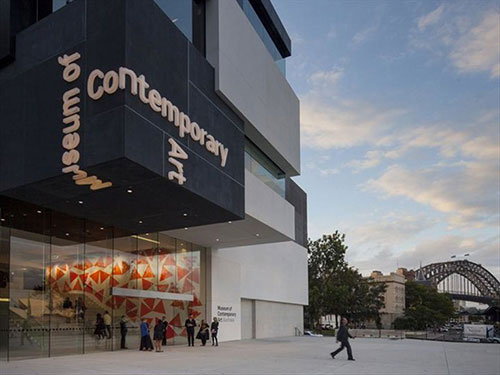
Sometimes I joke that some contemporary artists, on their deathbed, will go, “ha, ha – gotcha!” [We’ve all seen art that consists of a pile of rocks in a circle, the rocks not touching, and the artist has left the person curating the exhibition free to arrange the rocks any way they like; or an unmade bed…; or a stack of bricks…]
What I hadn’t noticed, previous to walking past the Sydney Museum of Contemporary Art, is that the word “contemporary” is gluing together “con” and “temporary” (were the architects having a now-not-so-private joke?!)
I hope you can pick the tenor of this post. Even so, in the context of developing and leading contemporary worship, the observation should cause us to pause.



I’ve long said that you can’t say “contemporary” without saying “temporary”…
Is it worth considering that all earthly worship is of a temporary nature compared with that which is to come?
Yes – important point, Claudia. The flip side of the coin is the realisation that worship not merely be our own construct, but a participation already now in the worship that is to come. Blessings.
An honest word to describe the present state of affairs. “Tradition” is the dishonest word (or perhaps it is used dishonestly?). It presupposes that something has always been and therefore always should. Whereas the writer of Ecclesiastes reminds us that, yes everything has it’s time, but really it is but a passing mist. Just a “con” and only “temporary”.
Good point, thanks, Jethro. Is Ecclesiastes the final word for us – or do we, as Christians, have a Word that trumps Ecclesiastes? Blessings.